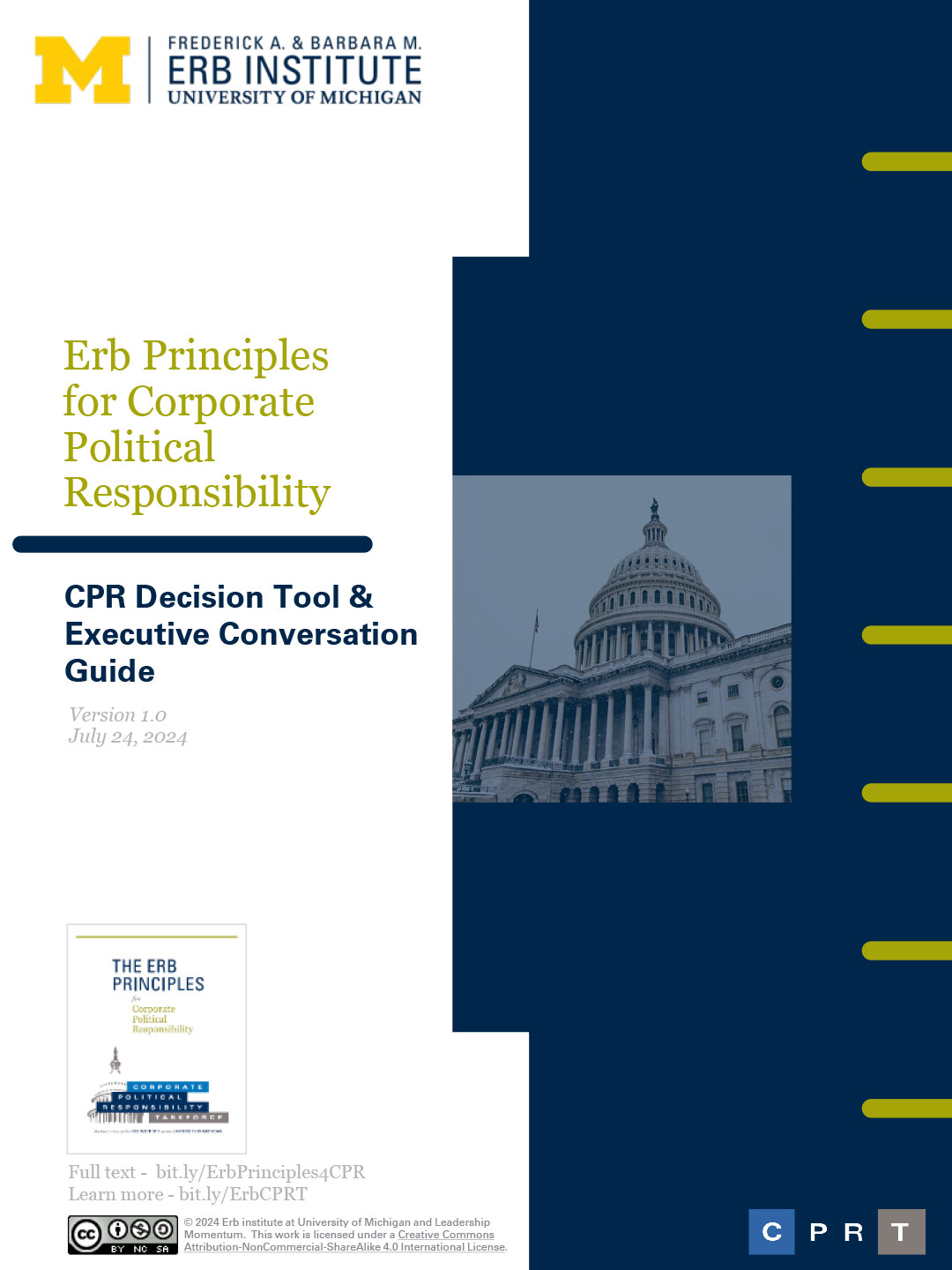Do you have a resource to recommend for The CPR Hub? Please reach out and we will review it for future updates!
Draft European Sustainability Reporting Standards – ESRS G1: Business Conduct
ESRS G1 sets mandatory disclosure requirements on business conduct, covering corporate culture, supplier relationships, anti-corruption and bribery, whistleblower protection, political influence and lobbying, and payment practices, especially toward SMEs. It links governance and conduct to impact, risk, and opportunity management, making companies explain how business behavior supports transparent, sustainable practices for all stakeholders.
Notes on Related Topics
Legal Risk or Uncertainty (A) – ESRS G1 clarifies new disclosure expectations under the EU’s sustainability reporting framework, exposing companies to regulatory and enforcement risk if they under-report or mis-report business conduct, corruption incidents, or political activity.
Reputational Risks (A) – Required disclosures on corruption cases, whistleblower protections, and payment practices make opaque or irresponsible conduct visible to investors, media, and civil society, increasing reputation stakes for boards and executives.
Reporting Disclosures (B) – The standard details specific narratives and metrics companies must publish on corporate culture, investigations, political contributions, and lobbying topics, embedding business conduct into core sustainability statements.
Lobbying Policy Influence (B) – G1-5 compels disclosure of political influence and lobbying activities, including topics, positions, and financial or in-kind contributions, directly aligning public-policy engagement with material impacts, risks, and opportunities.


